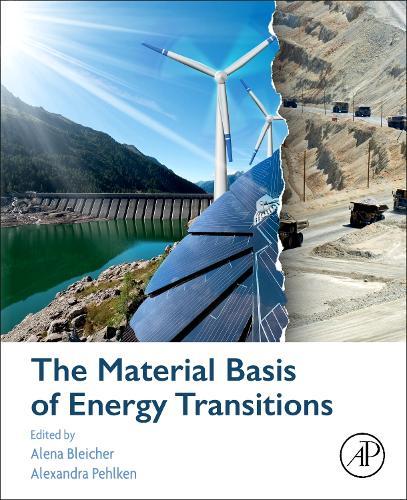Overview
The Material Basis of Energy Transitions explores the intersection between critical raw material provision and the energy system. Chapters draw on examples and case studies involving energy technologies (e.g., electric power, transport) and raw material provision (e.g., mining, recycling), and consider these in their regional and global contexts. The book critically discusses issues such as the notion of criticality in the context of a circular economy, approaches for estimating the need for raw materials, certification schemes for raw materials, the role of consumers, and the impact of renewable energy development on resource conflicts. Each chapter deals with a specific issue that characterizes the interdependency between critical raw materials and renewable energies by examining case studies from a particular conceptual perspective. The book is a resource for students and researchers from the social sciences, natural sciences, and engineering, as well as interdisciplinary scholars interested in the field of renewable energies, the circular economy, recycling, transport, and mining. The book is also of interest to policymakers in the fields of renewable energy, recycling, and mining, professionals from the energy and resource industries, as well as energy experts and consultants looking for an interdisciplinary assessment of critical materials.
Full Product Details
Author: Alena Bleicher (Senior researcher in Sociology, Helmholtz Centre for Environmental Research-UFZ, Leipzig, Germany) ,
Alexandra Pehlken (Energy division, OFFIS e.V. - Institut für Informatik FuE Bereich Energie, Oldenburg, Germany)
Publisher: Elsevier Science Publishing Co Inc
Imprint: Academic Press Inc
Weight: 0.520kg
ISBN: 9780128195345
ISBN 10: 0128195347
Pages: 256
Publication Date: 07 August 2020
Audience:
Professional and scholarly
,
College/higher education
,
Professional & Vocational
,
Postgraduate, Research & Scholarly
Format: Paperback
Publisher's Status: Active
Availability: Manufactured on demand

We will order this item for you from a manufactured on demand supplier.
Author Information
Alena Bleicher is a senior sociology researcher. Between 2015 and 2019 she led a research group that investigated social scientific perspectives on technology development for critical raw material extraction at the Helmholtz Centre for Environmental Research (UFZ) in Leipzig, Germany. Her research focuses on societal aspects of technological development in the contexts of geothermal energy systems and raw material provision. She has an interest in questions about non-knowledge in decision making, valorization of secondary raw materials, changing practices, and responsibility in technology development. Alexandra Pehlken is an expert in raw material engineering and recycling. She studied Mining and Mineral Processing at RWTH Aachen University in Aachen, Germany. She completed her Doctorate degree in the Mining Engineering Faculty in 2002. Her expertise lies in sustainable resource management, the cascade use of materials and its impact on life cycle performance. Between 2014 and 2019 she was head of the research group Cascade Use at Carl von Ossietzky University. Currently she is a member of the Energy division at OFFIS and a board member of the Energiecluster Oldenburg.



